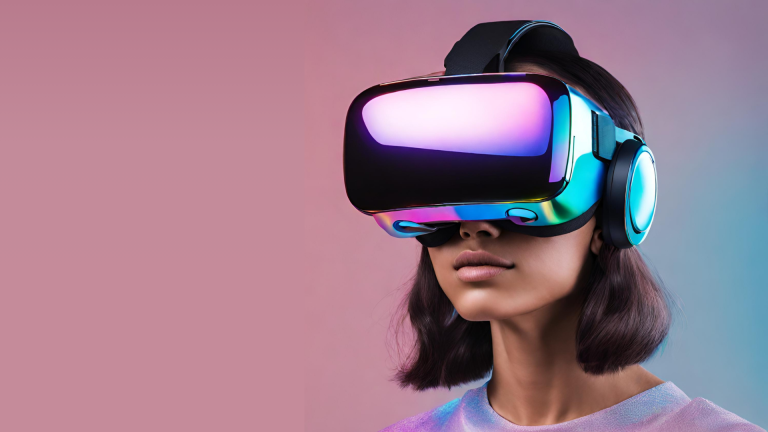Rise by Six: Your Daily Dose of Inspiration
Explore insights and stories that elevate your day.
Reality Check: Why Virtual Reality is the Escape We Didn't Know We Needed
Discover how virtual reality is transforming our world and offering the ultimate escape. Dive into the experience you never knew you needed!
Exploring the Therapeutic Benefits of Virtual Reality: A New Path to Mental Wellness
In recent years, Virtual Reality (VR) has emerged as a groundbreaking tool in the field of mental health. By immersing users in a three-dimensional environment, VR can provide unprecedented opportunities for therapeutic intervention. For instance, individuals suffering from anxiety disorders can utilize VR exposure therapy, allowing them to confront their fears in a controlled and safe setting. This gradual exposure helps to desensitize users, promoting a sense of control and reducing anxiety levels over time.
Moreover, the therapeutic benefits of Virtual Reality extend to conditions such as PTSD, depression, and chronic pain management. Research indicates that VR can facilitate a strong emotional response, aiding in the processing of traumatic events. Additionally, some programs are designed to promote mindfulness and relaxation, helping users cultivate a sense of peace amid the chaos of daily life. As the field of mental wellness continues to evolve, VR represents a promising avenue for individuals seeking innovative solutions to their mental health challenges.

Virtual Reality vs. Reality: How Immersive Experiences Help Us Cope with Daily Stress
In today's fast-paced world, many individuals find themselves overwhelmed by daily stressors, from work deadlines to personal responsibilities. Virtual reality (VR) offers an innovative solution to this modern dilemma, paving the way for immersive experiences that can transport users to serene environments away from their hectic lives. By utilizing VR technology, users can engage in stress-relieving activities such as guided meditations, nature experiences, or even creative outlets like painting in a virtual space. As these experiences become more accessible, they allow people to unplug from reality and take a much-needed mental break.
Moreover, the therapeutic benefits of immersive experiences in virtual reality extend beyond mere relaxation. Studies suggest that engaging in VR settings can enhance coping mechanisms and assist individuals in processing their emotions. For instance, individuals dealing with anxiety can practice exposure therapy in a controlled, virtual environment. This allows them to confront their fears gradually, which can lead to significant improvements in their overall mental health. Whether you are looking to escape the pressures of daily life or actively work on managing stress, VR technology is becoming an increasingly popular tool for enhancing emotional well-being.
Is Virtual Reality the Future of Escape? Debunking Myths and Highlighting Reality
As technology evolves, virtual reality (VR) is increasingly becoming a popular topic of discussion, often touted as the future of escape. However, many misconceptions surround this innovative technology. Common myths suggest that VR is solely for gaming or that it isolates users from reality. In truth, VR offers immersive experiences that can enhance social interactions and provide therapeutic benefits. For instance, VR applications are being developed for mental health treatments, enabling users to confront phobias or trauma in a controlled environment, thereby demonstrating how it serves as a powerful tool for healing rather than a mere escape.
Moreover, the future of virtual reality is not limited to individualized experiences. It is poised to transform various sectors, including education and training. Imagine a classroom where students can explore ancient civilizations or simulate complex scientific experiments in a virtual setting. This level of engagement enhances learning and retains attention far better than traditional methods. As we delve deeper into the possibilities of VR, it becomes evident that rather than leading us away from reality, it has the potential to enrich our understanding and experiences, proving that virtual reality is more than just an escape; it is a gateway to new realities.